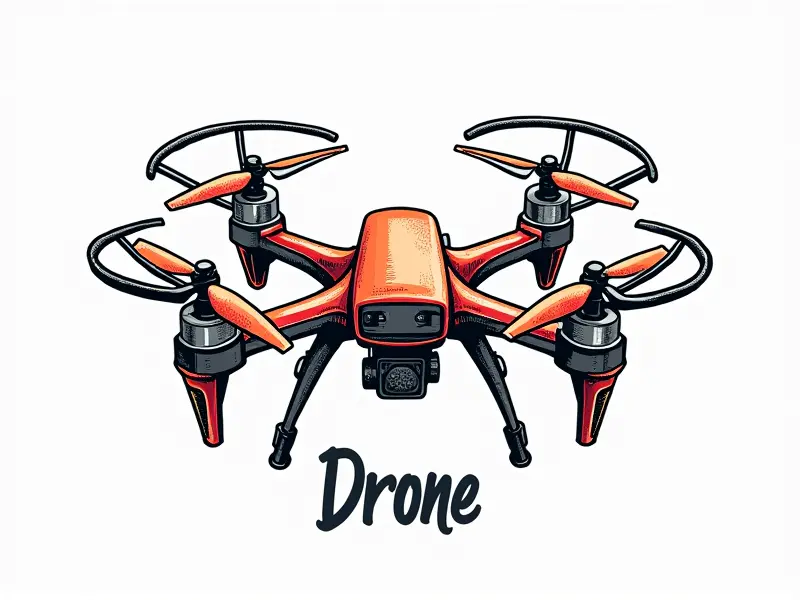FPV drone GPS capabilities?

The integration of Global Positioning System (GPS) technology into First-Person View (FPV) drones has revolutionized the way these devices are used for racing, exploration, and aerial photography. This article delves into how effective GPS is in FPV drones, its role in drone racing, and the various ways it enhances flight performance.
How Effective is GPS in FPV Drones?
The effectiveness of GPS in FPV drones cannot be understated. GPS provides critical data such as altitude, speed, and location, which are essential for maintaining stable flight and navigating complex environments. This technology ensures that pilots have real-time information to make informed decisions during flights.
The Role of GPS in FPV Drone Racing
In the high-stakes world of FPV drone racing, GPS plays a pivotal role by providing precise location data and aiding in route planning. Pilots can use this technology to optimize their flight paths and enhance their competitive edge. Additionally, GPS helps in tracking race performance metrics, enabling racers to analyze and improve their techniques.
Enhancing FPV Flight with GPS Technology
The integration of GPS into FPV drones offers numerous benefits for pilots. It allows for automated takeoffs and landings, reducing the risk of accidents caused by human error. Furthermore, GPS enables advanced flight modes such as waypoint navigation and return-to-home features, which are invaluable in challenging terrains.
Maximizing FPV Drone Autonomy with GPS
GPS technology significantly boosts the autonomy of FPV drones. By leveraging GPS data, drones can operate semi-autonomously or fully autonomously, executing complex maneuvers and missions without constant pilot intervention. This capability is particularly useful in scenarios where manual control might be impractical or dangerous.
Understanding GPS Features in FPV Systems
Modern FPV systems incorporate a range of GPS features designed to enhance flight experience. These include:
- Altitude Hold: Maintains the drone's altitude at a set point, ensuring stable flight.
- Waypoint Navigation: Allows drones to follow predefined routes with precision.
- Return-to-Home (RTH): Guides the drone back to its starting location if communication is lost or battery levels are low.
- Geofencing: Sets virtual boundaries around a specific area, preventing drones from flying outside designated zones.
FPV Drone Precision: The Impact of GPS
The precision offered by GPS is crucial for achieving optimal performance in FPV drone operations. It ensures that drones can maintain accurate positioning and orientation, even in dynamic environments. This level of accuracy is particularly beneficial during aerial photography and videography, where sharp focus and steady shots are paramount.
Boosting FPV Drone Performance with GPS
GPS technology not only improves the stability and safety of FPV drone flights but also enhances overall performance. By providing real-time data on speed, altitude, and position, pilots can optimize their flight strategies and achieve better results in races or missions.
How GPS Aids FPV Drone Pilots
GPS aids FPV drone pilots by:
- Improving Navigation: Helps pilots navigate through complex terrains with ease.
- Enhancing Safety: Reduces the risk of crashes and other accidents caused by loss of control or poor visibility.
- Boosting Efficiency: Enables drones to complete missions faster and more efficiently, thanks to automated features like RTH and waypoint navigation.
Exploring GPS Capabilities in FPV Drones
The capabilities of GPS in FPV drones extend beyond basic positioning and tracking. Advanced systems offer functionalities such as:
- Dynamic Obstacle Avoidance: Uses GPS data to detect obstacles and adjust flight paths accordingly.
- Synchronized Multi-Drone Operations: Allows multiple drones to operate in sync, coordinating their movements for complex missions.
Navigating FPV Drives with GPS Precision
The precision of GPS technology is instrumental in navigating FPV drives. It enables pilots to plan and execute routes with pinpoint accuracy, ensuring that they can explore new areas safely and efficiently. This capability is especially valuable for long-distance flights or expeditions into unfamiliar territories.
FPV Drone Racing: Is GPS a Game Changer?
The integration of GPS technology in FPV drone racing has undeniably transformed the sport. It provides racers with critical information to optimize their performance and compete at higher levels. The use of GPS features like waypoint navigation and real-time tracking can give pilots an edge over competitors, making it a game-changer for those who embrace this technology.
Conclusion
The role of GPS in FPV drones is multifaceted and increasingly indispensable. From enhancing flight precision to boosting autonomy and performance, the benefits are clear. As GPS technology continues to evolve, its impact on FPV drone racing and operations will only grow stronger, making it an essential tool for any serious pilot.

